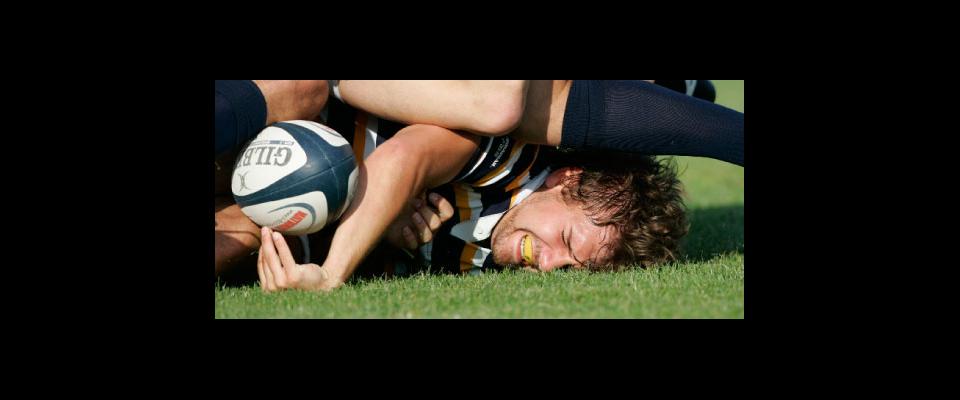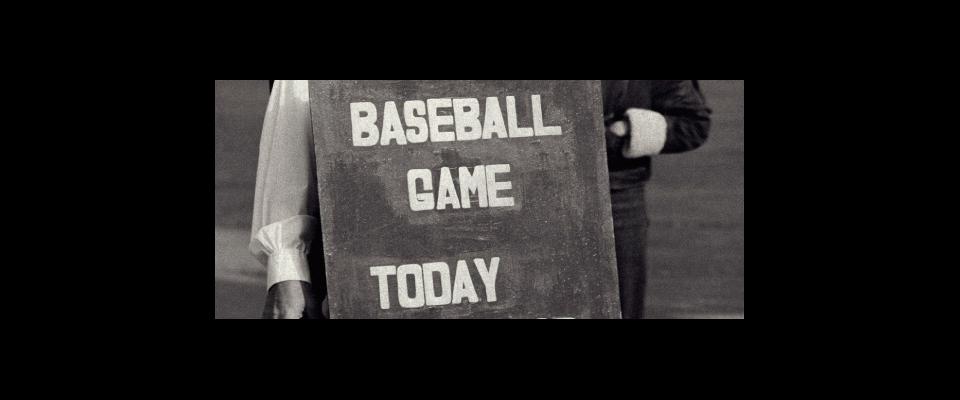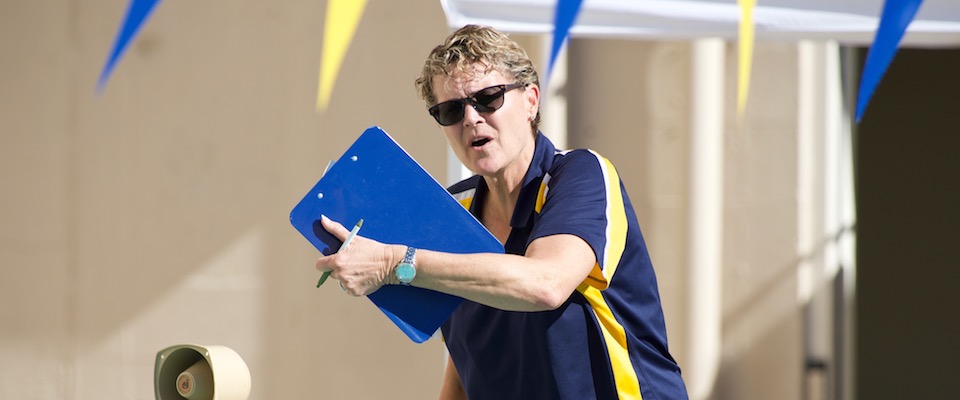California Magazine: At the press conference announcing the cuts, you were clearly unhappy. But I have to confess that my first thought was, “Jack Clark should probably feel lucky. The other teams were eliminated. Rugby’s just been reclassified.”
JC: Hey, listen: I appreciate that. And you’re not the first person who has said that. My disappointment has mostly to do with the validation that intercollegiate athletics provides the men who have played rugby at Cal over the years. That validation was important to us and we didn’t ask for much else. We didn’t ask the University for a budget. We didn’t ask them to build us facilities. As a program, we didn’t feel like we were entitled to that stuff but that it was our job to go out and provide for ourselves. The one thing that we wanted to earn is intercollegiate varsity status.
CM: Correct me if I’m wrong, but Cal was unique in having a varsity rugby team. The other teams you compete against are clubs, right?
JC: That’s mostly correct, but it’s one of the things that was painful to hear coming from the University, because it came across as almost a justification for rugby’s demotion. In reality, the very best teams we play against have everything that we have and, in some cases, a lot more. In the semifinals last year we played an Arkansas State team that had thirteen South Africans on the squad. At Brigham Young University, there’s a lot of admissions help given to players. At Utah, they can give kids in-state tuition. How great would in-state tuition be at Cal for our out-of-state players? We even lose a kid every once in a while to St. Mary’s College because the Christian brothers can put together a little aid package for them, which we can’t here.
CM: None of your players get scholarships?
JC: No, we’re a non-scholarship team. Actually we pay into the University just under one million dollars in fees and tuition; that is, the parents of my players do. But back to your first question: Did we receive a varsity letter and were we part of intercollegiate athletics, and is that somewhat unique within college rugby, the answer is yes to all of that. But that’s it.
CM: You’re trying to dispel the idea that Cal has had an unfair advantage somehow.
JC: That’s exactly right. And I think it’s also important to remember that all universities get to decide what their intercollegiate sports are. Men’s volleyball has a significant NCAA championship, and we decided it’s a club sport at Cal, right? It’s our decision. Likewise, we can decide that sports like rowing and rugby—both non-NCAA sports, but also our oldest sports at Cal—are part of our intercollegiate athletic department.
CM: And am I correct in thinking that women’s rugby is an NCAA sport?
JC: Yeah, that’s right.
CM: Which brings me to the question of gender equity. It seems clear that the decision to move rugby to this new tier was not, ultimately, a financial one, since the team is nearly self-supporting. That would seem to leave Title IX as the rationale.
JC: Well, I mean there’s no other way to look at it. But let me say this up front, since it’s important for any comments I’m going to make: I’m a fan of Title IX. I think gender equality is exactly the right mission. I know a lot about athletics and what it can do for people, and the fact that we didn’t have enough opportunities for young women was a crime. But this has to be about expanding opportunities for young women, not shrinking men’s opportunities. And I certainly appreciate that these are hard decisions and that there are no silver bullets out there, but we cut two women’s teams and we didn’t save much money—not really. And by cutting those two teams, rugby got caught up in the proportionality head count under Title IX. I just wish somebody had said beforehand, “Hey Jack, would you help fund those other two teams?” I would have put my hand up.
CM: Almost every affected coach has said to me that they wish they had been given a chance to meet a financial target and head this off.
JC: Well, in our case, I’m talking about helping somebody else meet their target. We understood a long time ago that we were going to have to pay our way, and we’ve built an endowment of 5 million dollars or so, and we have annual giving programs, and a very strong commercial presence. Right now, we’re third in the department in merchandise sales, we’re in the top five in concession sales, top three or four in paid attendance. We haven’t been cruising along kicking the can up the road expecting other people to pay our bills. We’ve done just the opposite, and I assumed our diligence would be rewarded. It wasn’t.
CM: Are there any ways in which you are better off now?
JC: Better off? Well I don’t know. Vice Chancellor Yeary, who we now report to, is a switched-on guy, but you have to remember that all these people leave at some point. The next vice chancellor may say, ‘Why the hell is the rugby team reporting to me? I’ve got a $1.8 billion budget to look after.’
CM: I understand Witter Field has been converted to artificial turf for the football team to practice on. Where does that leave the rugby squad?
JC: Well, this year, we’ll just play away games. Assuming we were willing to play on synthetic turf, which I don’t think is safe for our sport, there’s no parking, there’s no seating. Better to play the games elsewhere unfortunately. Of course our costs will go up for that. And you know we’re very proud of that field. That was our attempt to put down permanent roots on campus. A lot of loyal rugby people got really excited about that project. But, okay, I get ‘greater good.’ I get the idea that we’re building a new high performance center, and we’re remodeling an old stadium to make it safer and that all of these things had to go somewhere. Still, it would have been nice if someone from the administration had swung by and said to our players, “We appreciate you guys for shouldering this, and there was no other way. Thank you.”
CM: Does any of this manifest itself as resentment toward the big-money sports on campus?
JC: No, not with me. I played football here. But I think there are some questions that have to be answered. I find it hard to believe that the chancellor’s task force was mad about the rugby coach’s salary. I don’t think they were upset that 100 percent of the rugby players were graduating and paying their own way.
What I really believe in my heart is that intercollegiate athletics needs rugby. They need us to do what we do, which is go out and play our guts out for our university without a scholarship. To have guys who get up in the morning and run and then go to school all day and then train in the afternoons and play their hearts out when they’re in their blue and gold jerseys.
Now we’re not the only ones, right? I mean I have a lot of respect for the rowing program, for example; they have a sense of history, much like we do. And now the baseball team is gone, another team with considerable history here. That’s like a man bites dog story. I’m still trying to get my head around that.
CM: Yeah, that one that really surprised me.
JC: I find the commercial rationale for some of these decisions mind-boggling. In baseball, we’re going to sell in the Bay Area this year 4 or 5 million baseball tickets between our two professional teams. That’s many hundreds of millions of dollars before you even buy a hotdog. And here we are in the same market—and we’re not talking Little League baseball, man, this is Pac-10 baseball! How is it we couldn’t find a million bucks in commercial potential there? Instead, there’s all this talk about donors. Donors need to fund this and that. Why do the donors always have to fund everything?
And our sport, rugby is almost the most ridiculous. Here we are, we’re at the top of the food chain in North American rugby. And with that positioning, the very year that rugby goes back into the Olympic Games, goes back into the Pan-American Games, goes back into the World University Games, the very year that NBC Universal and ABC/ESPN are battling each other over rugby World Cup rights, right at the moment in time when all of this commercial momentum is gaining behind rugby, we demote our team.




















